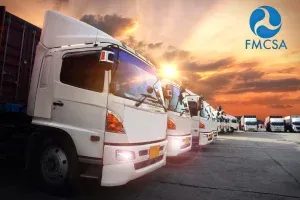In 2024, the auto transport industry in the USA is rapidly evolving due to several key trends. Increased adoption of electric vehicles (EVs) is significantly reshaping shipping practices, requiring specialized equipment and enhanced safety protocols. Additionally, advanced AI and automation technologies are streamlining operations, boosting efficiency, and cutting down delivery times by optimizing route planning and real-time tracking. Regulatory updates from the Federal Motor Carrier Safety Administration (FMCSA) are also pivotal, setting new safety and operational standards. Staying informed and adapting to these changes will ensure that auto transport businesses remain competitive and compliant in a fast-moving market. Upcoming FMCSA Rule Changes in Auto Transport (2024–2025) The Federal Motor Carrier Safety Administration (FMCSA) is rolling out major regulatory changes between 2024 and 2025 that will reshape the U.S. auto transport industry. These changes are designed to enhance safety, increase transparency, and modernize compliance in a rapidly evolving transport landscape. This blog post breaks down each anticipated change, how it impacts car shipping businesses, and what you can do now to prepare.
1. Electronic Logging Device (ELD) Enhancements
The FMCSA plans to tighten rules around ELD use, focusing on:
- Expanded data collection for better visibility into driver behavior.
- Real-time location tracking to prevent tampering.
- Integration with fleet management systems for improved logistics.
Impact: Carriers will need to invest in ELD systems that offer more than just basic tracking. This may increase costs for smaller operators but also opens the door for more automation and fewer manual processes.
2. Higher Insurance Minimums
Since 1985, the required insurance minimum for carriers has remained unchanged at $750,000. The FMCSA is pushing to raise this minimum to align with current economic conditions. Expected Range: $1.5 to $2 million in liability coverage. Impact: Higher premiums will affect smaller operators the most. However, better coverage can increase customer confidence and protect carriers in large-scale claims.
3. Speed Limiter Requirements
The FMCSA is proposing mandatory speed limiters on all commercial vehicles over 26,000 pounds. Key Points:
- Speed may be limited to 65 mph or less.
- Affects delivery timelines and fuel efficiency calculations.
Impact: Companies will need to adjust timelines and routing logistics. While it promotes safety, it may reduce delivery flexibility.
4. Drug & Alcohol Testing Expansion
Expect broader testing protocols, including:
- Hair follicle testing in addition to urine samples.
- More frequent random testing.
- A centralized, updated database of test results.
Impact: Enhanced screening can reduce liability and improve fleet safety but may delay hiring processes.
5. Safety Fitness Determination (SFD) Reform
FMCSA is revamping how it evaluates carrier safety. Current methods use a pass/fail approach; the new model may introduce a tiered risk rating system (e.g., excellent, satisfactory, conditional, unsatisfactory). Key Changes:
- Use of real-time telematics data.
- Inclusion of roadside inspections and crash data.
Impact: Transparency will improve for brokers and shippers. Poor performers may be excluded from contracts more easily.
What Auto Transport Companies Should Do Now
To stay ahead, auto transport businesses should:
- Upgrade Technology: Invest in ELD systems with real-time tracking and compliance features.
- Review Insurance Policies: Talk to your insurance provider to explore increased coverage and prepare for upcoming rate adjustments.
- Reevaluate Delivery Estimates: Factor in potential delays due to speed limiters and new compliance checks.
- Strengthen Hiring Standards: Prepare for broader drug testing by setting clear hiring timelines and standards.
- Train Staff: Ensure dispatchers, drivers, and support teams understand new rules and how to adapt operationally.
Why These Changes Matter for Shippers and Brokers
- Shippers want reliability and risk-free delivery. Compliant carriers offer peace of mind.
- Brokers need transparent, data-backed carrier ratings to make informed decisions.
- Carriers that adapt early gain a competitive edge.
The FMCSA’s rule updates are not just red tape—they represent a forward-looking shift to modernize the transport ecosystem and ensure safety across the board.
Conclusion The 2024–2025 FMCSA rule changes are poised to impact every part of the car shipping industry. Whether you’re a carrier, broker, or customer, staying informed is crucial. By understanding the regulations and preparing proactively, you’ll stay compliant, competitive, and ready for the future of auto transport.



